O my Son! Come back. Just look at me once—see how I am slowly dying in the pain of your abduction.
O my Son! Where are you? Just glance at me and give me a hug so that I may die in peace. You even promised to support me when I grew old, when my weak and frail bones would fail me. You said you would be my staff.
O my Son! Come back!
O my Brother! I am lost in darkness. The light of my sight has extinguished. I cannot find you. Where are you?
O my Brother! My protector! You promised to protect me and stand by my side through thick and thin, through weal and woe. Now, where are you? I am feeling your absence too much.
O my Brother! Come back!
O my Partner! You held my hand, promising never to leave me alone. You vowed to stand beside me through every hardship. Yet today, I cry alone in a dark corner, and you are nowhere to be found.
O my Partner! Why have you left me alone? When I glance around, all I see is your picture marked with your disappearance. I hear everyone crying. Just come back and rekindle the light that was extinguished by your abduction.
O my Father! You promised to hold my hand and travel across Balochistan with me once I could walk. You longed to hear my frail words, to hear your name from my stumbling tongue. I have been calling you for months and years, yet you have not answered even once.
O my Father! Whenever I see children with their fathers, I cry and call out to you. I pray to Allah in helplessness to bring you back.
O my Father! Come back and see how I wander from place to place in search of you.
O dear Autumn! Why do you not leave now? Why have you taken shelter in our land? Why are the leaves still falling? Why are the flowers not blooming yet? Why has the greenery of the trees faded away and not returned?
O Autumn! Please go away and take my request to Spring—ask it to come back! Ask Spring to return and bring joy and happiness. Our eyes are exhausted from waiting for the beautiful flowers to bloom, our ears are longing to hear the chirping of birds, and our hearts have grown weary, yearning to feel the fresh air of good news.
O Autumn! Let Spring come and bring joy and peace. Let Spring wipe the tears from our faces. Let Spring come.
O my beloved ones! Just come back and see how we are. Just return, dears.
The moon has been sighted. The joyful Eid has arrived, filled with happiness and celebration. But where are you, my beloveds? Why does Eid not bring joy to the Baloch people, not to Balochistan? O Eid! You should have waited—perhaps our dear ones were returning. Maybe today could have been a day of happiness for us.
O my sisters! I know you are still crying in the corner like me, waiting for your beloved brother, who remains shackled in chains behind dark torture cells. I know that instead of bangles on your hands, you are holding the picture of your disappeared brother. I know your heart is heavy with sorrow, your eyes filled with tears, yearning for the best news. I know this Eid is not for you—just as it is not for me. O dear sister! This Eid is not for you.
O my dear mother! Are you still looking at the door, hoping that your moon—your son—will appear and that the day will become your Eid? You prayed throughout Ramadan, your eyes brimming with tears, yet you could only utter the heartbreaking words: “Where is my son? Where is my moon?” O God! Is this Eid not for me? Is this Eid not for me?
O helpless daughters and sons! Why are you still wandering? Are you searching for your father? Are you waiting for the day he will be free from the torture cells so you can celebrate Eid together? Are you hoping that your father will bring you new clothes and shoes, so you too can rejoice like other children?
Is Eid tomorrow?
Eid brings a new day, different from all others. It is a day of happiness, a light that eliminates all darkness. Eid is a day of peace and togetherness, filled with love and joy.
But has anyone ever asked a Baloch what Eid means to them? Is it truly a new day, full of happiness? A radiant light? A joyful gathering? Or is it a day of protests and demonstrations, chanting for the safe release of their “moon”?
Has anyone asked Zakir Majeed’s mother if she has celebrated Eid since June 5, 2009? Has she lived in bright light for 15 years, filled with jubilation and ecstasy? Has anyone asked if she has not been sobbing and tearing up every Eid for her treasured son, praying for his safe release?
Has anyone asked Sammi Deen how she has lived her life since June 28, 2009, like an orphan? Has anyone asked her and her family whether they have been wailing in grief or cherishing their days for the past 15 years? Sammi Deen, who was struggling and wandering the streets even on Eid, is now behind dark prison cells, shackled in handcuffs. And now, has anyone asked Mehlab Deen how she will celebrate Eid today without her esteemed father and revered sister?
How can Eid be for Mahrang Baloch behind torture cells? Dr. Mahrang Baloch, who was struggling and resisting against every tragedy and cruelty inflicted upon the Baloch people, is a leading voice for every missing person. She follows the words of her father: “When you remember my enforced disappearance, do not think you are alone. Look around—you will see countless others, drowning in the agony of separation from their loved ones. Their silent screams, their endless suffering will surround you. And in that moment, your pain will seem small compared to the ocean of grief that engulfs them all.”
But today, Mahrang Baloch’s sisters, Nadia and Iqra, are on the streets for their sister. Today, they are not only enduring the pain of their father’s disappearance and martyrdom but also the agony of their sister, Mahrang Baloch.
How can I say that Chairman Zahid’s family is celebrating Eid with joy? Chairman Zahid, the leader of BSO Azad, was thrown into dark and cruel torture cells on March 18, 2014. For 11 years, his family has endured the unbearable pain of his disappearance.
His helpless son, Qamber Zahid Baloch, says:”For eleven years, my father has been missing. I have not even seen his shadow. In his absence, my uncle, Shah Jahan—my father’s brother—became my guardian, raising me as his own. But the fascist state took him from us too.”
Shah Jahan was recently killed in March 2025. Now, Zahid Baloch’s family not only grieves his disappearance but also mourns the loss of Shah Jahan, who was their last pillar of strength.
How can I say they are celebrating Eid?
Ohhhh! Asad Baloch—the Junior Joint Secretary of BSO Azad—has left the Baloch nation in agony for 11 years. He became a victim of enforced disappearance in March 2014, alongside Chairman Zahid Baloch, whose whereabouts remain unknown to this day. Asad Baloch was a committed and dedicated political activist who gave everything for his cause. Unfortunately, the barbaric state has also trapped him within its so-called policies.
The pain of Shabir’s sister, who has spent the last nine years on the streets in search of her brother, is unimaginable. Every time she hears about mutilated corpses being discovered, she rushes to hospitals, trembling, searching—praying it is not him, yet fearing it might be. How painful must it be for a sister to search for her brother’s body instead of his embrace?
Shabir Baloch, the Central Information Secretary of BSO Azad, was forcibly abducted on October 4, 2016, while attending a gathering related to CPEC. Armed forces raided the event and detained him. Since that day, he has remained disappeared, and his whereabouts are still unknown.
His wife carries a question that haunts her every moment: “Tell me, should I live as Shabir’s wife or as his widow?” His mother spends sleepless nights, fearing that if Shabir were to return and knock on the door, she might be in deep sleep and fail to open it.
How can this family celebrate Eid under such agony?
Words fail me when I try to describe the suffering of Dr. Abdul Hayee Baloch’s family. An OT technician at DHQ Hospital Awaran, he was forcibly abducted on June 1, 2024.
Perhaps, for others, this duration seems short. But what about his mother, his sisters, his wife, and his sons? What about his innocent two-and-a-half-year-old son, Abdul Hadi, who, on this sacred day of Eid ul Fitr, watches other children holding their father’s hand, walking toward the mosque, playing with them—while his own father is nowhere to be found? And what about his younger son, Yaagi Baloch, just seven months old, who has never even seen his father’s shadow? A child who, on the day of his birth, was met not with his father’s embrace, but with the silence of his absence.
This sight breaks me. It shatters something deep inside me.
The fire in which a sister like me is burning can never be extinguished until a brother-in-law like my brother returns. Two Eids have come and gone, yet I have not seen my moon. How can my family and i rejoice? How can we celebrate Eid without him?
Eid ul-Adha passed in sorrow, and now Eid ul-Fitr follows the same fate. To whom should I ask for him? Where is he?
As Eid draws nearer, the pain tightens its grip on my heart, like a knife piercing deeper and deeper.
Instead of the sparkle of joy in our eyes, tears are streaming down.
But it is not just me, not just one family—it is all of Balochistan. This fire has spread like a wildfire, consuming every home, every heart. On this day, instead of celebrating, they are on the streets, chanting slogans for their loved ones, demanding their return.
What about Rashid’s family? What about Saeed’s family? Mehrgul Marri’s family? What about Saira, who sacrificed her education in the desperate struggle for her brothers’ safe release?
Whose pain should I describe?
Every name carries a story of loss, every family bears a wound that never heals. How do I choose whose suffering to put into words when all of Balochistan is drowning in the same sea of grief?
If I begin to speak or write about the agony and suffering of the Baloch people, it cannot be contained within a single page, a single article, or even an entire book. The reality is that there are thousands of languages, yet no words exist to truly describe the pain felt by every mother, every sister, every father, brother, wife, son, and daughter who grieves. Every Baloch household is engulfed in the flames of enforced disappearances, Baloch genocide, and targeted killings. Every flower has withered. Autumn has made its home in Balochistan.
Darkness has engulfed all of Balochistan. Every mother waits at the door, her eyes longing for the return of her son. Every sister strains to hear even a single word from her missing brother. A son yearns for just a glimpse of his father. A daughter searches for the shadow of the man who once held her hand. A wife sits on his path, hoping to see him once more.
And now, entire families weep not only for their missing loved ones but also for the sisters who were dragged away and thrown behind the cold walls of police stations. They auctioned their honor—those who were once the voice of the voiceless now wait for us to rise, to stand against this injustice.
We, too, will wear new clothes. We, too, will have smiles on our lips and joy in our eyes. We will celebrate Eid—when our moons return.
The day will be our Eid when our beloved ones return.

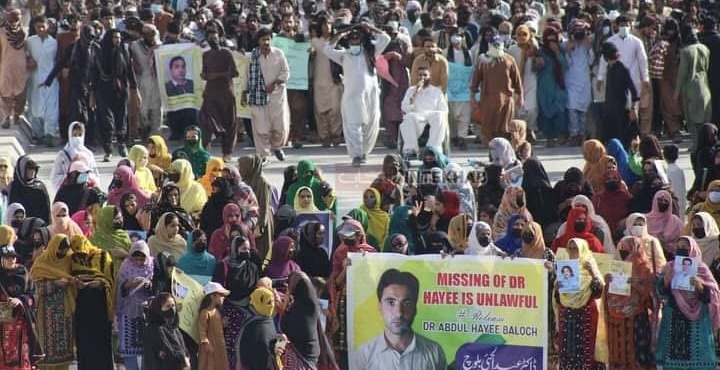

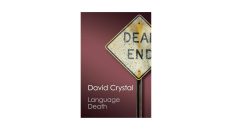

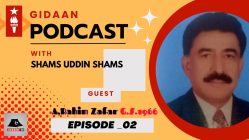
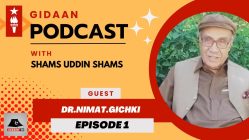
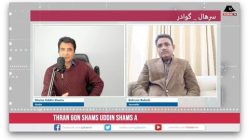
Add comment